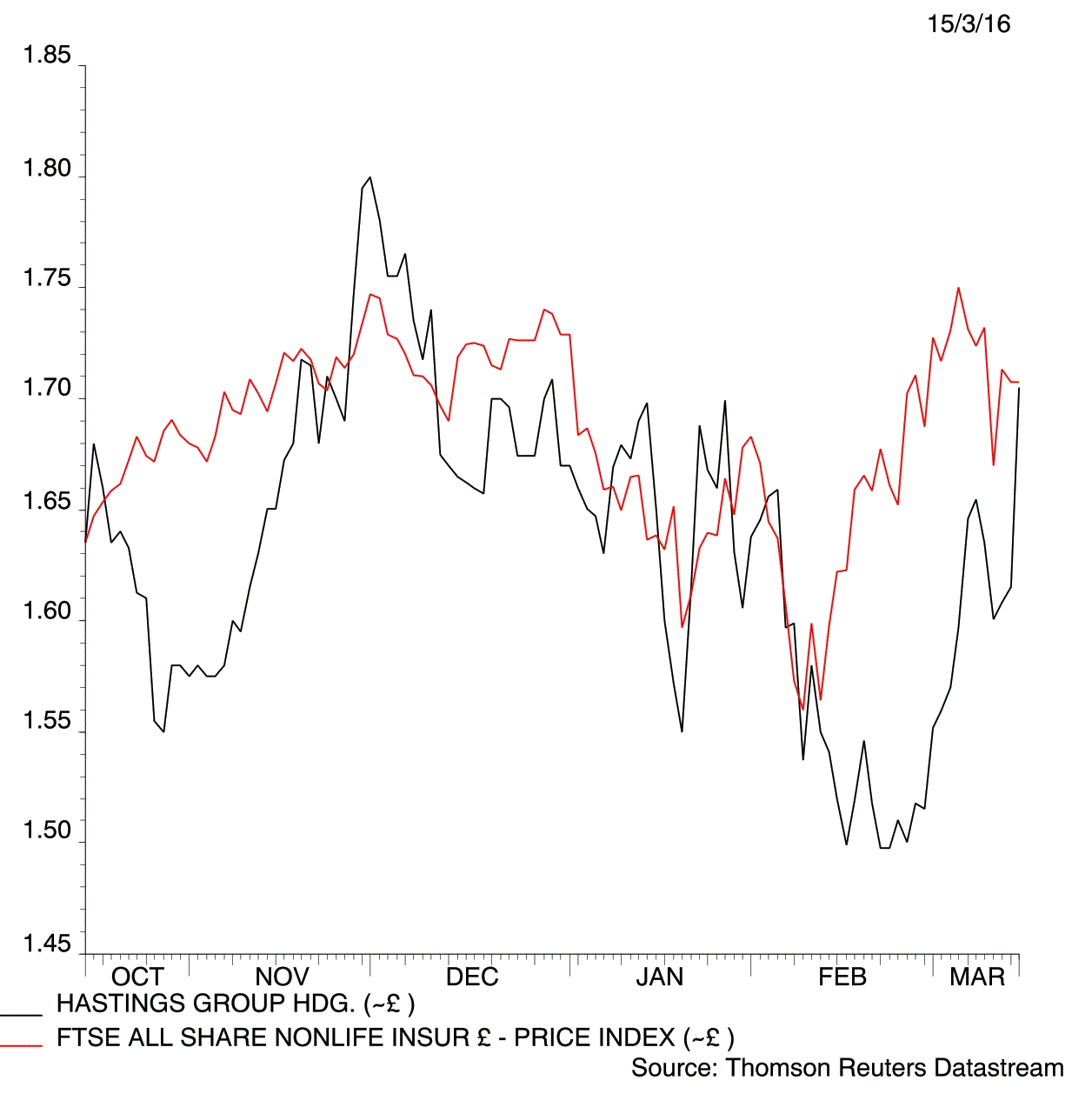
A 33% pre-tax profit rise to £91.3 million in 2015 and a 2.2p a share maiden dividend sees home and car insurer Hastings (HSTG) advance 3.1% to 166.5p.
There has been an increase in customer numbers and premiums are27% higher at £614.9 million. Chief executive Gary Hoffman expects to see these figures rise if George Osborne increases the insurance premium tax in Wednesday’s Budget (16 March 2016).
‘Everyone seems to be expecting that,’ he tells Shares. ‘As I sit here today I believe what I’m reading in the press.’
If prices have to rise following Osborne’s speech to Parliament on March 16, Hoffman believes Hastings will probably benefit because more people will be looking towards price comparison websites for a cheaper deal.
He says that 90% of the group’s business is through such channels and points to overpriced rival insurance books forcing home-owners to look for a better deal.
The rise in premiums was driven by 19% growth in customer numbers to 2 million and a 9.5% rise in the average written premium.
He describes a potential rise in premium tax insurance as a tax on consumers. ‘If there was a tax on petrol, consumers could chose to drive a little less. Yet it is compulsory to purchase car insurance.’
He would rather the government focus on reducing prices through stamping out ‘bogus’ whiplash claims and stopping claims management companies from targeting people who haven’t had an accident.
Hastings’ saw home insurance policies rise by 87% in 2015 to 134,000. This was a rise from a low base as although it has been writing home policies for four years, management has increased focus in this area during the past 18 months.
The boss says consumers are changing the way they buy home insurance. More people are going to price comparison websites and not just accepting the policy offered by their mortgage company.
Hoffman quotes data that shows people using such websites to buy insurance has increased by 77% to 46% since 2011.
‘We are good at price comparison websites,’ he says. ‘The way in which we operate is geared to us becoming successful at selling home insurance because of the use of data we have, because we move quickly and because we monitor what competitors are doing.’





